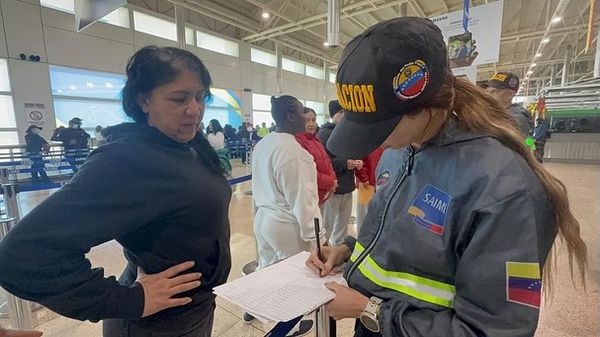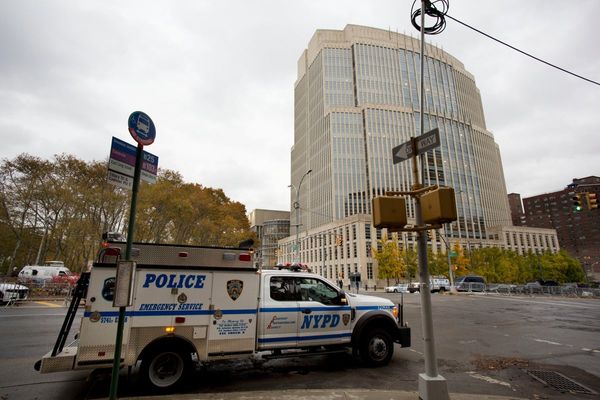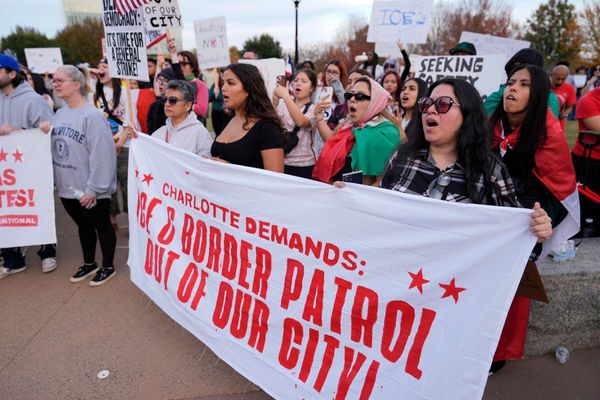There's an empty block of land in Manuka that some think is just crying out for a hotel.
Think of it - 300 metres from the shops, a seven-storey boutique hotel with an underground carpark and rooftop bar.
You could watch the sunset and a cricket or football match or both, right in the heart of Canberra's inner south.
Who could possibly object to such a plan?
When it comes to this weed-infested 2500-square-metre patch, plenty of people.

The army tank and bronze sculpture standing side-by-side just off the footpath are the only clue to the site's origins.
But old-timers well remember the autumn night, 13 years ago, when the Canberra Services Club burnt to the ground, taking with it decades of history, heritage and memories.
The years since have been a long and winding road of disappointments and setbacks, as the club struggles to secure a future in a changing world.
The lease only allows for a facility of the same dimensions and purpose as the one that burnt down - a community hub that was already running at a loss in an age of super-clubs and changing community needs.
The current board of directors now wants to change the nature of the lease, with a view to building a new club with an adjoining boutique hotel.
This would give them an income stream to be able to continue as a community club; Manuka is zoned for hotels and restaurants, and the club's location is perfectly suited to a hotel.
But, according to club president Jon Hunt-Sharman, who has spent the last few years of his retirement from the police force trying to nut out a foolproof strategy to keep the place going, decisions will need to be made soon.
"What we know about small clubs is that they just can't survive without diversifying the income stream," he says.

"Super big clubs will obviously survive because they've got the poker machines, they've got multiple sites and all those things, and that's why they're taking over all the small clubs. The danger we've got is we know on the old site, as a standalone club, it was running at a loss for many of the latter years."
Home front spirit
The weatherboard club - known as "The Hut" was originally an actual hut built for local service men and women to "relax, have meals, enjoy billiards, dances (twice weekly), concerts and other social functions and reading facilities".
Named after the wife of the then-governor-general Lord Gowrie, the Lady Gowrie Services Club opened in March 1941 and was staffed by volunteers, who served around one million meals during the war years, in keeping with the home front spirit of the new young capital.
The Canberra Services Club came into being in 1948 with a more permanent structure, complete with a liquor licence and, from the late 1970s, poker machines. The club morphed and changed physically over the years, with an improved bar, new liquor storerooms, insulation and heaters.
By the time it burnt down - apparently after a log fell from a fireplace after the place had been locked up for the night - the club was running at a loss, with an uncertain future in the rapidly changing Canberra landscape.

An empty block, a fight to survive
In the 13 years since, the club has built up another series of trials and tribulations, of the planning legislation variety, as it has struggled to come up with a solution that would allow it to continue as a community club.
In 2015, it bought the former ACT Rugby Union Club in neighbouring Barton while retaining ownership of the Manuka site, its "spiritual home".
This was always intended as a temporary measure with the aim of eventually returning to the Canberra Avenue site in Manuka.
A year later, Chief Minister Andrew Barr knocked back a highly contentious unsolicited bid from the GWS Giants and developer Grocon to transform the Manuka Oval precinct, including the site of the club.
The club had also been poised to relocate to the old Manuka Occasional Childcare Centre a couple of streets away, until that move was abandoned amid a public backlash.
In 2019, it applied to the ACT government to remove the concessional lease on both the Barton and Manuka premises, with plans for apartments and offices mixed with club premises.
Concessional leases are granted to clubs and other groups at less than market value to provide community facilities, but Canberra's clubs are increasingly removing the concessional status to develop their blocks to generate income.

The application to remove this lease, to the club's dismay, was knocked back.
Then COVID hit, the world stilled for a while, and a new directorship came onboard, ready to fight another fight.
The club has now reactivated the application to change the lease on the Manuka site, in what directors are calling a last-ditch attempt to ensure the club's future.
A new lease of life
The new plans are to rebuild the club on the site with an adjoining boutique hotel, and to retain and redevelop the Barton site.
Mr Hunt-Sharman says no matter the club's intentions, there is a constant suspicion it will inevitably sell out to developers once the lease is changed.
Residents groups from surrounding suburbs, as well as the Friends of the Manuka Pool, have previously objected to the lease being changed, amid concerns of unscrupulous development, and potentially removing a service from the community.
But he maintains the club instead wants to see it returned to its original function.
"We've recently decided, 'Let's go back to the origin of what the club was about'. It was community service. It was a group of people caring about others that set this up in the first place," he says.
"So let's broaden the word 'services' to include any not-for-profit or charitable group in the ACT that provides a service to the community. We're opening our doors to all those groups, and what we want to do is when we get to surplus, share our profits with those groups, because why else do we exist?
"The services club is truly there to provide service to the community.
"Our view is instead of people looking at what we want to do as a negative, it's actually a really positive thing ... if we are successful, we'll be able to fund all these charitable groups, way beyond what you're legally required because of pokie machines."
Kokoda in, pokies out
Among the things that were salvaged from the burnt wreckage in 2011, along with bricks from the old chimneys that were still standing, is the bronze Kokoda Memorial sculpture, donated in 1983 by the Kingston RSL Sub-branch and designed in 1981 by Helena Anderson.
The sculpture, which now stands outside the fenceline of the Manuka block, close to its original position at the entrance, depicts a "Fuzzy-Wuzzy Angel" helping an Australian soldier.
Mr Hunt-Sharman says if the club eventually builds a hotel, the memorial may stand in the foyer.
But as for the pokies, which have been in the club since the 1970s, they will eventually be phased out.
"We'll want to move to no gaming machines," Mr Hunt-Sharman says.
"We've already surrendered a number of licenses. So we've reduced our gaming machines significantly already. In the short term, we would still require them, the ones that we've got left, for revenue.
"But our intention would be to eventually get rid of them."
Last chance
Mr Hunt-Sharman now lives on the South Coast but has been known to arrive at the site before Anzac Day with a whipper-snipper, preparing for a traditional game of two-up. He maintains the club's ambition is both small and bold, with no attempt to change any zoning rules, sell off the site, or change the club's function.
Nevertheless, he can't help steeling himself for any and all objections to the latest plan, even though it is only the first step in what will be another long road ahead.
"There's going to be plenty of opportunity for the community to have input into a future development on the site because there's these multi-steps in the process and this is only right at the beginning," he says.
Send us a letter to the editor
- Letters to the editor should be kept to 250 or fewer words. To the Point letters should not exceed 50 words. Reference to The Canberra Times reports should include a date and page number. Provide a phone number and address (only your suburb will be published). Responsibility for election comment is taken by John-Paul Moloney of 121 Marcus Clarke Street, Canberra. Published by Federal Capital Press of Australia Pty Ltd.







